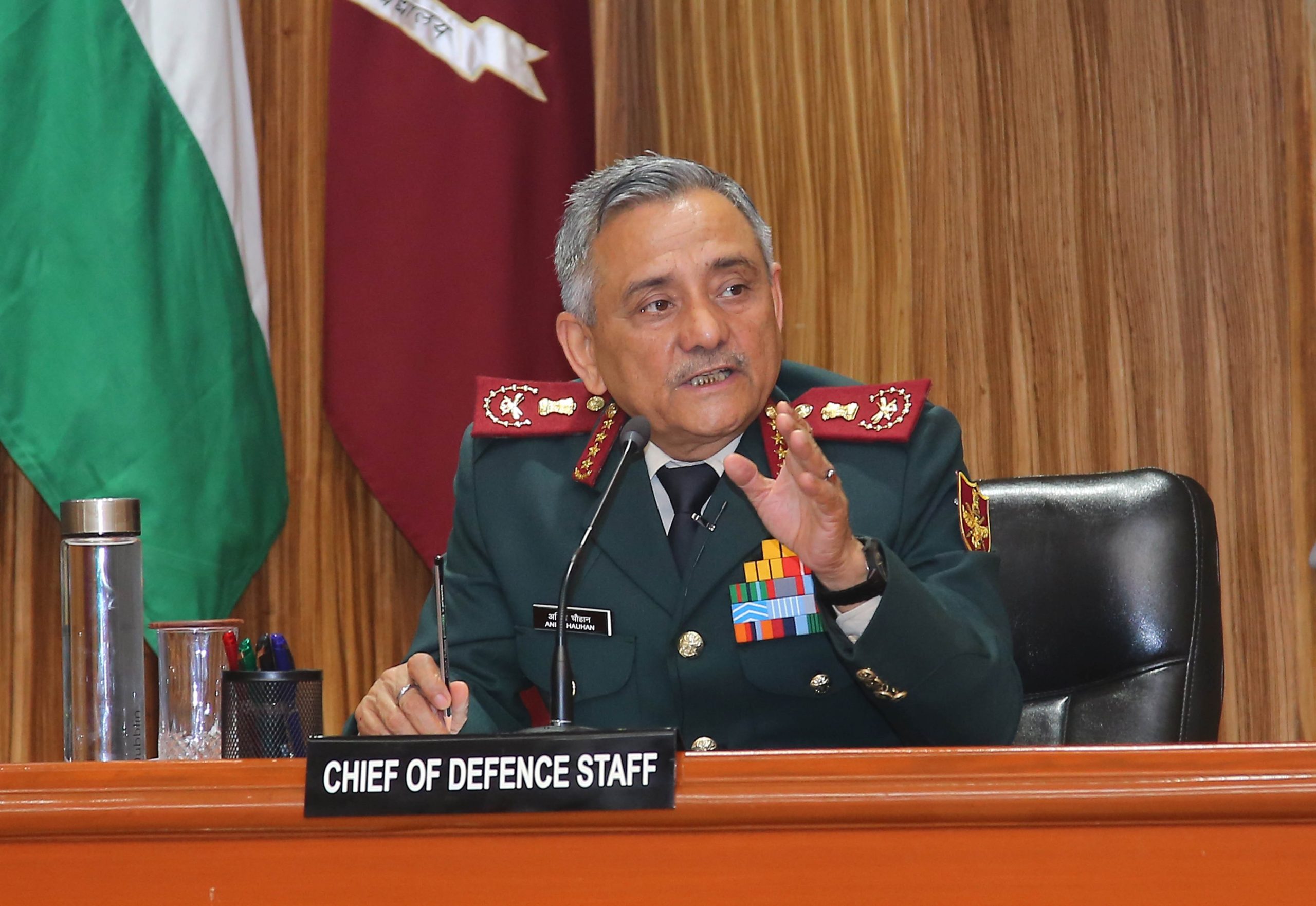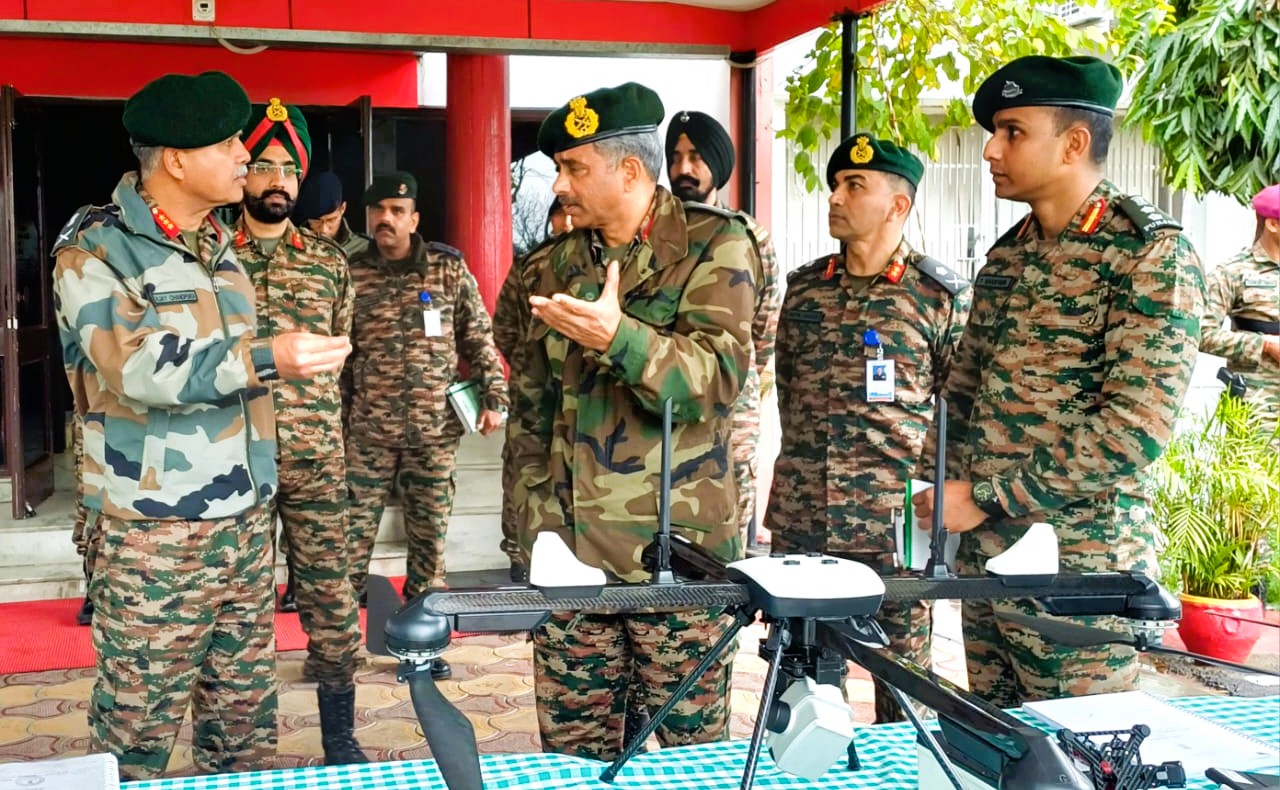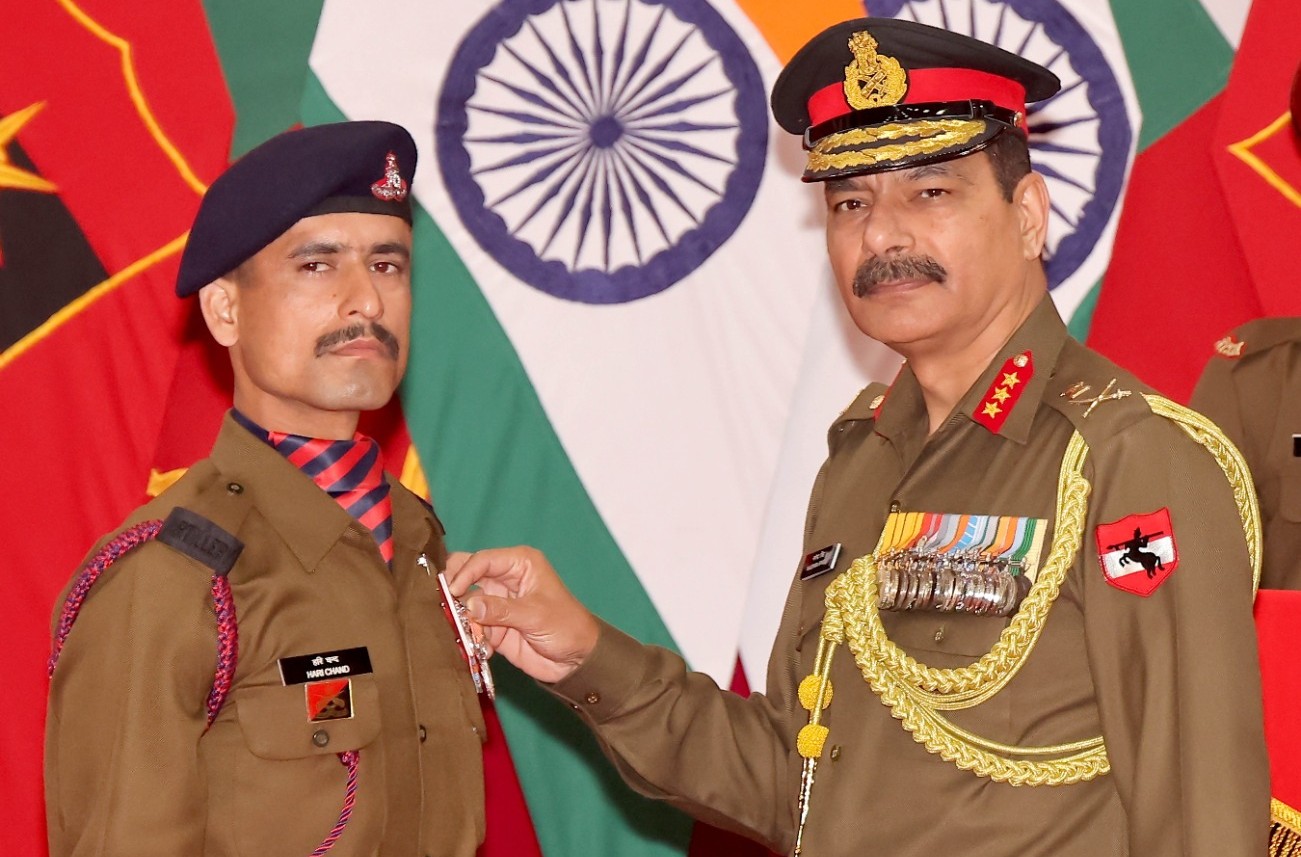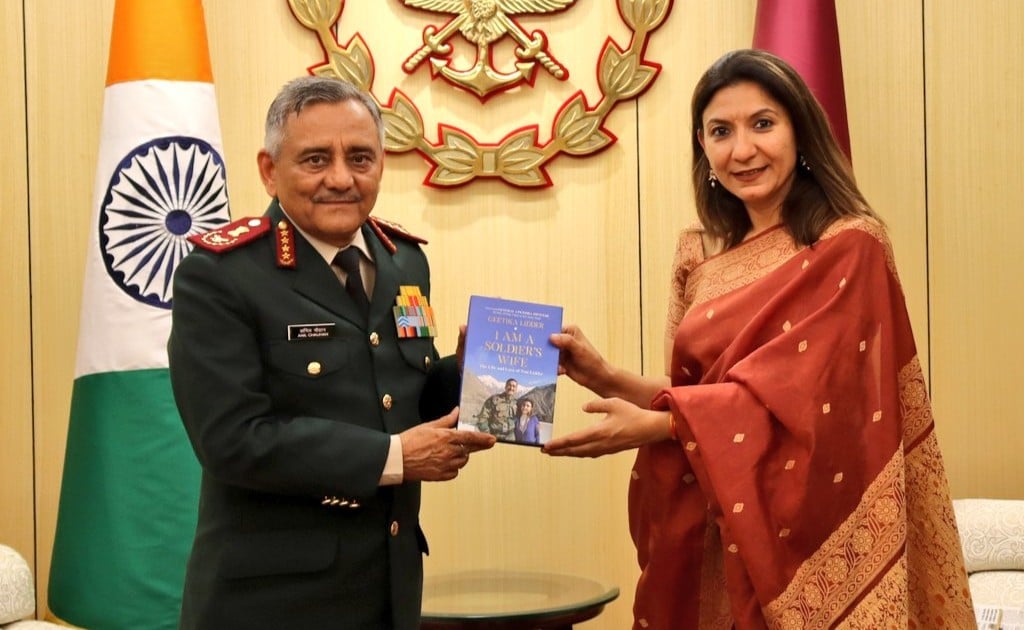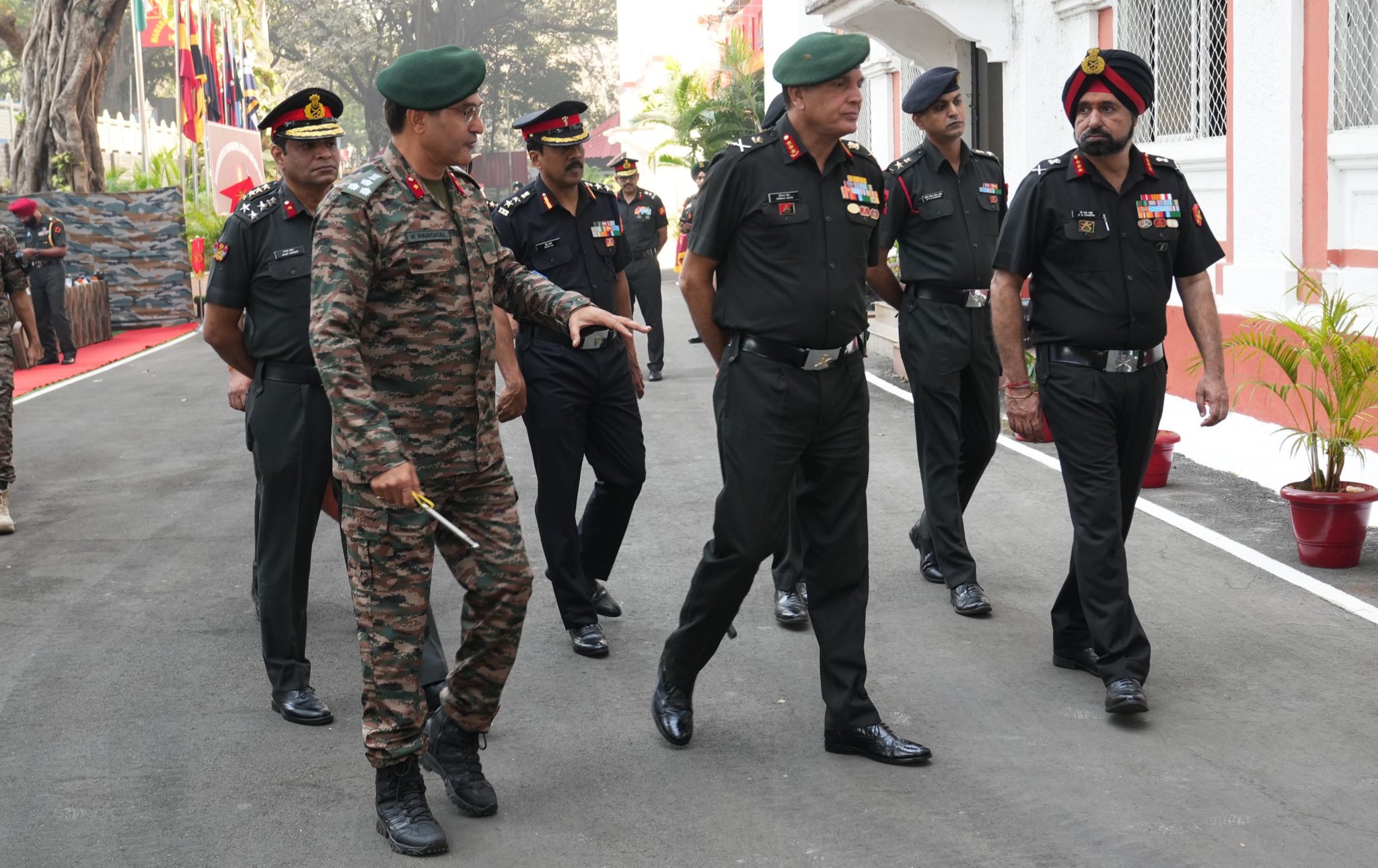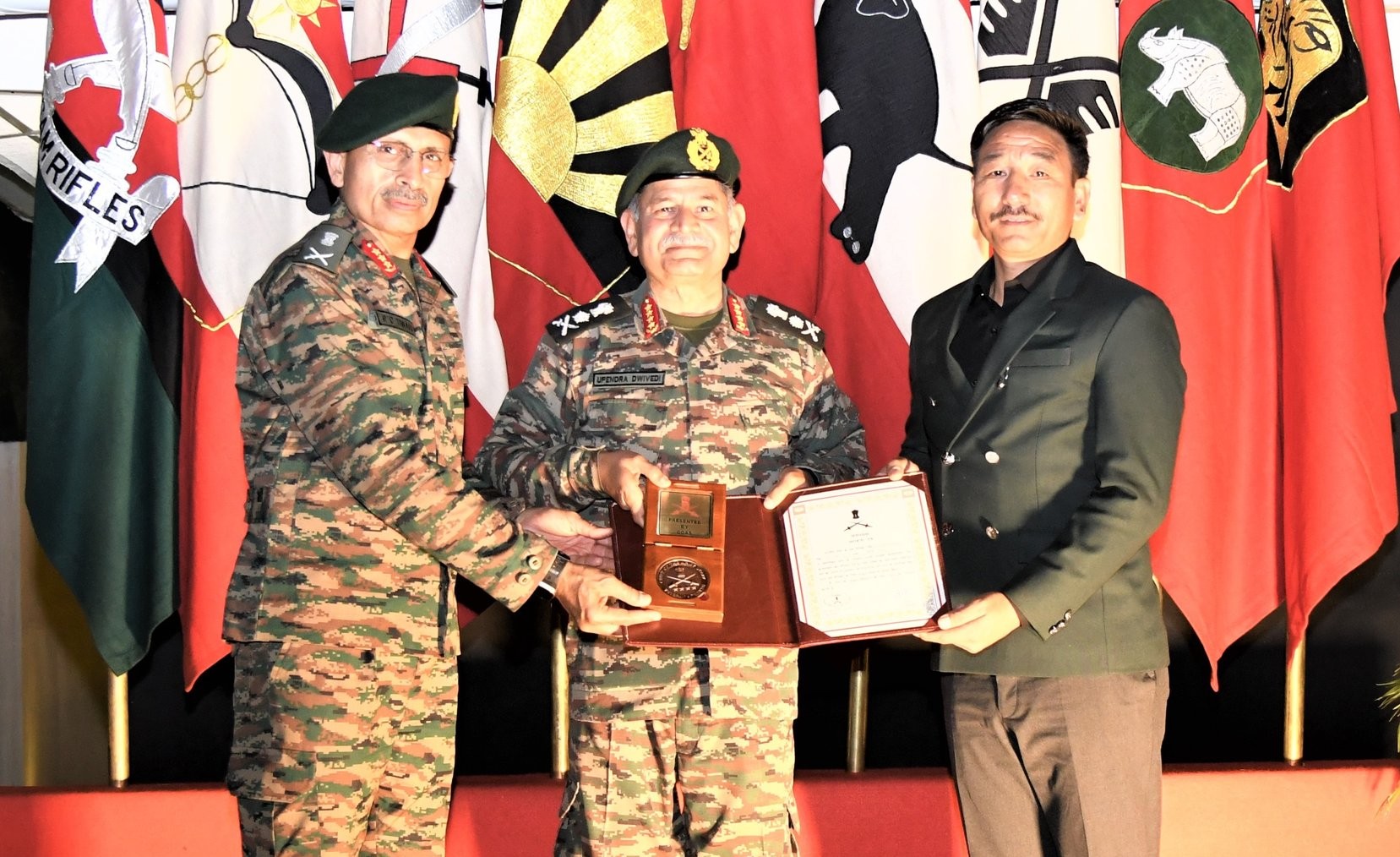General Anil Chauhan Emphasizes Change Management in Strategic Leadership at National Defence College
General Anil Chauhan, India’s Chief of Defence Staff (CDS), visited the National Defence College (NDC) in New Delhi today, delivering…
Lt Gen Manoj Kumar Katiyar Visits Panther Division
Lieutenant General Manoj Kumar Katiyar, PVSM, AVSM, conducted an official visit to the Panther Division, where he reviewed key operational,…
South Western Command Investiture Ceremony 2025: Honoring Valor, Commitment, and Excellence
The South Western Command Investiture Ceremony 2025 was conducted with grandeur at Kota Military Station, celebrating the highest traditions and…
General Anil Chauhan Meets Author Geetika Lidder, Honors Late Brigadier Lidder’s Legacy Through New Book
General Anil Chauhan, India’s Chief of Defence Staff (CDS), engaged in a meaningful interaction today with Geetika Lidder, wife of…
Lt Gen Dhiraj Seth Oversees Annual Inspection of Southern Command’s MG&G Area, Boosts Operational Readiness in Mumbai
Lieutenant General Dhiraj Seth, General Officer Commanding-in-Chief of the Southern Command, conducted the annual inspection of the Headquarters Maharashtra, Gujarat,…
COAS General Upendra Dwivedi Felicitates Veterans for Outstanding Contributions
In a heartfelt recognition of dedication and service beyond the uniform, Chief of the Army Staff (COAS) General Upendra Dwivedi…

